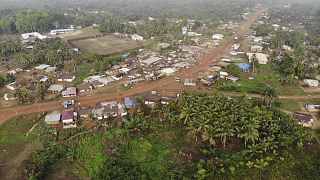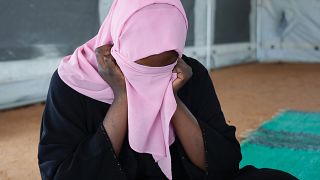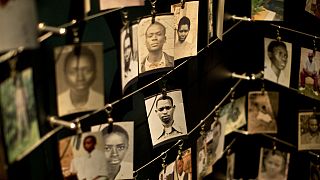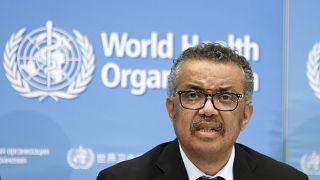Rwanda
When doctors diagnosed Lillian with cervical cancer, "it was a really scary moment." But a new, tailored treatment gave the 30-year-old Rwandan woman hope.
"The medical diagnosis was very scary, my husband couldn't believe it," Lillian, whose name has been changed, told AFP. "We had heard it was incurable, so it was a really scary time," she continued.And her fears were not unfounded.
Cervical cancer is the most common cancer among women in Rwanda, affecting 42 out of every 100,000 individuals (compared to just over 13 out of every 100,000 worldwide), according to Rwanda's National Institute of Statistics.
According to the World Health Organization (WHO), 940 women died of uterine cancer in 2019 in the Great Lakes country of just over 13 million people.
Many women dread getting screened, due to the fear and stigma surrounding the disease. Cervical cancer is the most common cancer among women with HIV, according to UNAIDS.
And those who are diagnosed often think that treatment is out of reach, unless they live in a big city.
For Lillian, who lives in a village three hours east of the capital Kigali, being cancer-free less than four months after diagnosis was a fantasy.
But in 2020, Rwanda decided to test a new device that treats precancerous lesions with heat and can be used in countries with limited access to advanced medical equipment or facilities.
"The nurse who treated me used a small gadget that looked like a gun. It's uncomfortable but not painful even though it uses heat to kill cancerous lesions," Lillian says.
- Energy efficient -
The portable thermocoagulator, suitable for low- and middle-income countries, is a probe-like device that uses a battery, and thus can be deployed in remote areas where access to electricity is intermittent.
"The device works by applying heat to the cervix, causing abnormal cells to die," Christine Musabyeyezu, a nurse at the Remera health center in Kigali, told AFP.
This technology, according to the nurse, is a much cheaper and less energy-consuming alternative to cryotherapy - which aims to destroy the lesion by freezing - and is also easy to use, requiring minimal training for health workers.
The portable thermocoagulator, on the other hand, is energy-efficient, providing one week of use, or about 140 treatments, before needing to be recharged.
In Rwanda, this treatment is now a central part of the fight against cervical cancer, especially in rural areas.
- Better screening -
Health workers also hope that technological advances will generally lead to better cancer diagnosis. Rwanda is currently testing an app that provides a diagnosis in seconds.
The mobile app works with a machine that uses acetic acid to determine the presence of cancerous lesions in the cervix.
According to Marisol Touraine, former French health minister and now president of Unitaid, an international organization that aims to reduce the price of drugs and supports clinical trials in Rwanda, more than 300,000 women die of cervical cancer each year worldwide.
The vast majority of these deaths - about 90% - occur in low-income countries "because they were not detected in time, because they were not treated in time," Touraine told AFP during a trip to Rwanda.
The number of Rwandan women coming for screening is increasing, which is good news.
"There is always a queue here of women coming to be screened for cervical cancer, more than for any other medical test," argued nurse Christine Musabyeyezu.
"It's a good thing because when they get screened early, they can be treated early," she says.











00:55
Algerian-French writer Kamel Daoud wins top French literary prize
01:00
DRC: M23 rebels seize new town near border with Uganda as talks drag
Go to video
Paris court sentences ex-Rwandan doctor to 27 years for 1994 genocide role
01:09
Congolese army announce they have taken back control of DRC's Kalembe, M23 rebels deny
11:07
The economy, the challenge of Kaïs Saïed's second term [Business Africa]
Go to video
US warns nationals to reconsider travel to Marburg-hit Rwanda